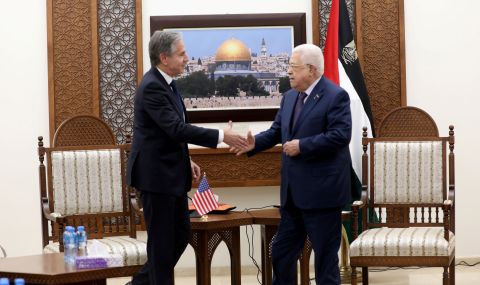35 years ago on November 15, 1988, the Palestinian National Council declared the independence of Palestine on the territory occupied by Israel in 1967 year (the West Bank of the Jordan River, including East Jerusalem, and the Gaza Strip). This leads to the recognition of the State of Palestine by 105 countries. Bulgaria is among the first countries to recognize the independence of the State of Palestine.
After the Second World War and the establishment of the United Nations in place of the League of Nations, on May 15, 1947, the United Nations established its Special Committee on Palestine (UNSCOP), which included many countries, except for the permanent ones. members of the Security Council, recall from Diplomatic spectrum.
The committee put forward two projects for resolving the conflict, the first of which consisted of the creation of two independent states, with the city of Jerusalem subject to international rule. The second project is to create a federation to encompass the Jewish and Arab states.
Most UNSCOP member states are inclined to accept the first draft, which calls for partition, with some adjustments to the borders between the two states, Arab and Jewish, with the partition decision taking effect on the day the British mandate army withdrew from Palestine.
On November 29, 1947, the UN adopted a resolution for the division of Palestine into two states: Jewish - for the Jewish immigrants, and Arab - for the Palestinians. On the evening of November 29, 1947, the vote was held on the fate of the Palestinian people and the division of their land. At that time, the number of UN member states was only 57 countries, 56 took part in the vote - with the exception of one country - the Kingdom of Siam (today's Thailand).
The great powers of the time - the Soviet Union, the United States and France - accepted the partition plan, with the exception of Great Britain, which preferred to abstain. Among the countries opposed to the plan are all Arab and Islamic countries, as well as Greece, India and Cuba. “For“ partition received 33 votes, 13 were “against”, 10 countries abstained from voting and one was absent.
Then US Secretary of Defense James Forrestal wrote in his memoirs, commenting on the pressure exerted on countries to vote in favor of the partition resolution: “The methods used to pressure and coerce other nations within the United Nations were scandalous.”
On October 1, 1948, the All-Palestinian National Council, convened in Gaza under the chairmanship of Haji Amin al-Husseini, declared the independence of all of Palestine with Jerusalem as its capital as a democratic state for all its citizens. Unfortunately, however, this declaration remains without international recognition.
For their part, the Jews declare the independence of their state under the name of Israel.
The Palestinian people do not surrender, but continue their struggle. Thus, in 1965, the modern Palestinian revolution began, the Palestine Liberation Organization was founded - the only and legal representative of the Palestinian people. After the Six Day War in 1967, Israel defeated the armies of Syria, Jordan and Egypt. Tel Aviv occupies the West Bank, including East Jerusalem, and the Gaza Strip.
On November 2, 1977, the UN General Assembly adopted a resolution declaring November 29 as the International Day of Solidarity with the Palestinian People.
The PLO, under the leadership of Yasser Arafat, and Israel, under the leadership of Yitzhak Rabin, signed the Oslo Accords in September 1993, which granted the Palestinian people transitional self-government for a period of five years, ending with the recognition of the State of Palestine on the territories in the West Bank, including East Jerusalem, and the Gaza Strip.
After 35 years, the Middle East is one of the hot regions of world politics.
